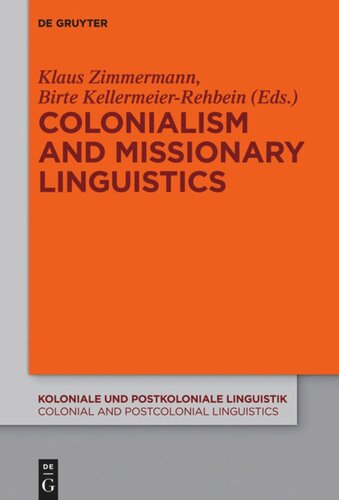

Most ebook files are in PDF format, so you can easily read them using various software such as Foxit Reader or directly on the Google Chrome browser.
Some ebook files are released by publishers in other formats such as .awz, .mobi, .epub, .fb2, etc. You may need to install specific software to read these formats on mobile/PC, such as Calibre.
Please read the tutorial at this link: https://ebookbell.com/faq
We offer FREE conversion to the popular formats you request; however, this may take some time. Therefore, right after payment, please email us, and we will try to provide the service as quickly as possible.
For some exceptional file formats or broken links (if any), please refrain from opening any disputes. Instead, email us first, and we will try to assist within a maximum of 6 hours.
EbookBell Team

0.0
0 reviewsA lot of what we know about “exotic languages” is owed to the linguistic activities of missionaries. They had the languages put into writing, described their grammar and lexicon, and worked towards a standardization, which often came with Eurocentric manipulation. Colonial missionary work as intellectual (religious) conquest formed part of the Europeans' political colonial rule, although it sometimes went against the specific objectives of the official administration. In most cases, it did not help to stop (or even reinforced) the displacement and discrimination of those languages, despite oftentimes providing their very first (sometimes remarkable, sometimes incorrect) descriptions.
This volume presents exemplary studies on Catholic and Protestant missionary linguistics, in the framework of the respective colonial situation and policies under Spanish, German, or British rule. The contributions cover colonial contexts in Latin America, Africa, and Asia across the centuries. They demonstrate how missionaries dealing with linguistic analyses and descriptions cooperated with colonial institutions and how their linguistic knowledge contributed to European domination.